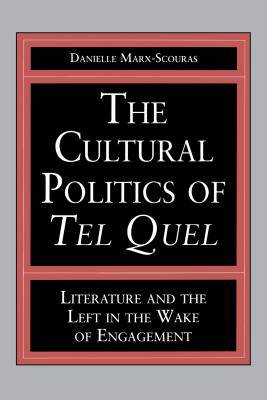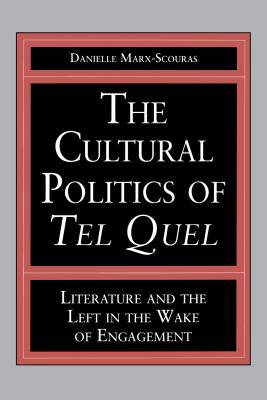
- Afhalen na 1 uur in een winkel met voorraad
- Gratis thuislevering in België vanaf € 30
- Ruim aanbod met 7 miljoen producten
- Afhalen na 1 uur in een winkel met voorraad
- Gratis thuislevering in België vanaf € 30
- Ruim aanbod met 7 miljoen producten
The Cultural Politics of Tel Quel
Literature and the Left in the Wake of Engagement
Danielle Marx-ScourasOmschrijving
Founded in 1960 by a group of relatively unknown young writers, Tel Quel quickly became one of the most influential literary journals and controversial intellectual movements in France. During the following two decades Tel Quel published the best in French intellectual thought and writing, including Roland Barthes, Georges Bataille, Jacques Derrida, Jean-Pierre Faye, Michel Foucault, Gérard Genette, Julia Kristeva, Bernard-Henri Lévy, Marcelin Pleynet, Philippe Sollers, and Tzvetan Todorov. By focusing on Tel Quel as an instrument of cultural renewal, Danielle Marx-Scouras demonstrates that literature--even when it claims to be disengaged--can never escape its historical ties.
The book elucidates the complexities of French intellectual life and the role played by Tel Quel in the evolution of intellectual thought and writing in the 1960s and 1970s. Tel Quel's cultural politics have been fashioned as much by the unpredictable historical changes of the post-World War II and Cold War era as they have by the advances in literary studies, semiotics, philosophy, and psychoanalysis during this period. The journal ceased publication in 1982, shortly before the dissolution of Marxism-Communism marked by the demolition of the Berlin Wall, the reunification of Europe, and the collapse of the Soviet Union. Marx-Scouras ultimately finds in its cultural venture some significant parting thoughts on a vigorous period of European literary and intellectual history.
Specificaties
Betrokkenen
- Auteur(s):
- Uitgeverij:
Inhoud
- Aantal bladzijden:
- 268
- Taal:
- Engels
- Reeks:
Eigenschappen
- Productcode (EAN):
- 9780271025568
- Verschijningsdatum:
- 15/09/1996
- Uitvoering:
- Paperback
- Formaat:
- Trade paperback (VS)
- Afmetingen:
- 152 mm x 229 mm
- Gewicht:
- 394 g

Alleen bij Standaard Boekhandel
Beoordelingen
We publiceren alleen reviews die voldoen aan de voorwaarden voor reviews. Bekijk onze voorwaarden voor reviews.











